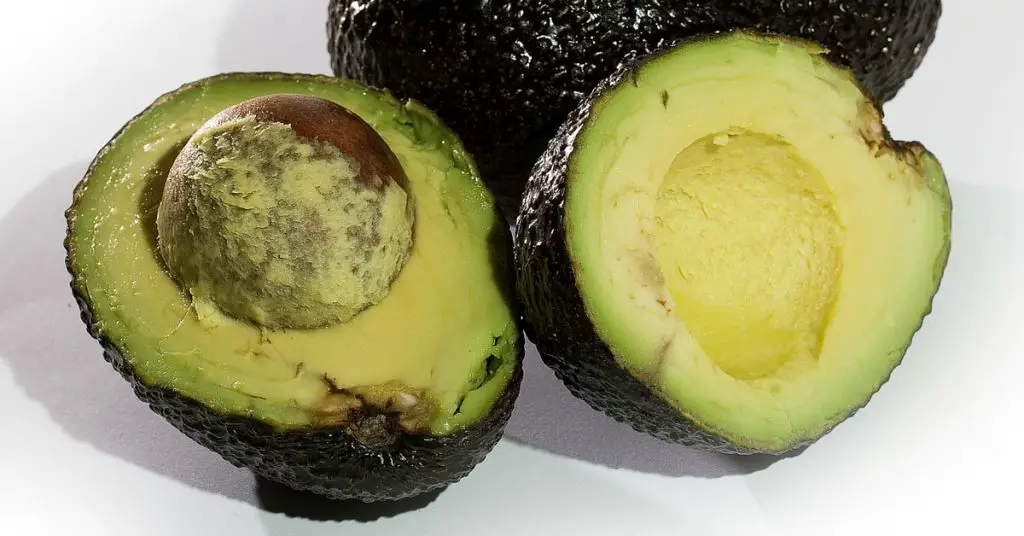Welcome to our blog post where we unveil the incredible health benefits of watermelon, pineapple, and papaya. These three tropical fruits, often enjoyed during summer, are not only delicious but also packed with essential nutrients that can contribute to your overall well-being. In this article, we will dive into the nutritional value and numerous health advantages these fruits offer. Get ready to discover the hidden treasures within these vibrant and juicy delights. Let’s explore the power of nature’s superfoods!
Watermelon: A Refreshingly Healthy Fruit
Watermelon, with its juicy and vibrant flesh, is a quintessential summer fruit that not only delights our taste buds but also provides numerous health benefits. In this section, we will delve into the history and origin of watermelon, its impressive nutritional profile, and the various ways it can contribute to our overall well-being.
The History and Origin of Watermelon
Watermelon, scientifically known as Citrullus lanatus, is believed to have originated from the Kalahari Desert in Africa. Dating back thousands of years, this fruit has played a significant role in ancient Egyptian and Greek cultures. Its seeds have even been found in the tombs of Egyptian pharaohs, suggesting its importance in their dietary practices.
Over time, watermelon spread across the globe, reaching different countries and continents through trade routes and exploration. Today, it is cultivated in many parts of the world, including the United States, China, Turkey, and Brazil.
Nutritional Profile of Watermelon
Watermelon is not only enticingly delicious but also packed with essential nutrients. It is an excellent source of hydration, as it consists of over 90% water. Additionally, it is rich in vitamins A, C, and B6, as well as minerals like potassium and magnesium.
A single serving of watermelon (approximately 1 cup) provides only about 46 calories, making it a nutritious and low-calorie snack option. It is also a good source of dietary fiber, aiding in digestion and promoting a healthy gut.
Health Benefits of Watermelon
- Hydration: As mentioned earlier, watermelon’s high water content helps to keep our bodies hydrated, especially during hot summer months. Staying hydrated is essential for numerous bodily functions, such as regulating body temperature, maintaining proper digestion, and supporting overall cognitive function.
- Heart Health: Watermelon contains an amino acid called citrulline, which helps to improve blood flow and promote cardiovascular health. It assists in the production of nitric oxide, a compound that helps to relax blood vessels and lower blood pressure.
- Anti-inflammatory Properties: Watermelon contains lycopene, a powerful antioxidant known for its anti-inflammatory properties. Regular consumption of lycopene-rich foods, like watermelon, may help reduce inflammation in the body and potentially lower the risk of chronic diseases, such as heart disease and certain types of cancer.
- Skin Health: The high water content in watermelon not only hydrates our bodies from within but also contributes to healthy, glowing skin. Additionally, this refreshing fruit is a good source of vitamins A and C, both of which play a crucial role in maintaining skin health and promoting collagen production.
- Digestive Health: Watermelon is an excellent source of dietary fiber, which aids in digestion and helps prevent constipation. It also contains natural sugars and fiber, which contribute to a slower release of sugar into the bloodstream, supporting healthy blood sugar levels.
Incorporating watermelon into your diet is a delightful way to enhance your overall health. From its hydrating properties to its impressive nutritional profile, this fruit proves to be a true gem of nature. So, the next time you indulge in a juicy slice of watermelon on a hot summer day, remember that you are not only satisfying your taste buds but also nourishing your body with an array of health benefits.
Pineapple
Pineapple is a tropical fruit that is loved for its sweet and tangy flavor. Not only does it taste delicious, but it also boasts an array of health benefits. In this section, we will explore the origins and cultivation of pineapple, delve into its nutritional composition, and uncover the various ways in which it can positively impact your health.
The Origins and Cultivation of Pineapple
Originally native to South America, specifically Brazil and Paraguay, pineapple has a rich history that dates back centuries. The fruit was first brought to Europe by Christopher Columbus in the late 15th century, and it quickly gained popularity due to its unique taste and versatility.
Today, pineapple is primarily cultivated in tropical regions such as Hawaii, Costa Rica, Thailand, and the Philippines. The fruit thrives in warm climates and requires a well-drained soil to grow successfully. Pineapple plants typically take around 18 to 24 months to mature and produce their delicious fruits.
Nutritional Composition of Pineapple
Pineapple is a nutrient-dense fruit that offers a wide range of vitamins, minerals, and antioxidants. It is a great source of vitamin C, which plays a crucial role in supporting immune function and promoting collagen production for healthy skin. Additionally, pineapple contains significant amounts of manganese, a mineral that aids in metabolism and bone health.
Furthermore, pineapple is packed with dietary fiber, which helps promote healthy digestion and can contribute to feelings of satiety. This makes it a satisfying snack option for those looking to maintain a healthy weight. The fruit also contains a group of enzymes called bromelain, which has been linked to various health benefits.
Health Benefits of Pineapple
- Digestive Health: As mentioned earlier, bromelain, an enzyme found abundantly in pineapple, can aid in digestion by breaking down proteins and supporting a healthy gut. This can alleviate symptoms of indigestion, bloating, and heartburn.
- Immune Support: Thanks to its high vitamin C content, pineapple can help strengthen the immune system, making it easier for your body to ward off illnesses and infections. Including pineapple in your diet may help reduce the duration and severity of common cold symptoms.
- Anti-Inflammatory Properties: Bromelain in pineapple has been found to possess potent anti-inflammatory properties. It can help reduce inflammation in the body, which may be beneficial for individuals with conditions such as arthritis and asthma.
- Bone Health: Pineapple is a good source of manganese, a mineral that plays a vital role in bone formation and maintenance. Regular consumption of pineapple can contribute to strong and healthy bones, reducing the risk of conditions like osteoporosis.
- Heart Health: The antioxidants present in pineapple, combined with its fiber content, can help lower the risk of heart disease. By reducing oxidative stress and cholesterol levels, pineapple promotes cardiovascular health.
Incorporating pineapple into your diet can be as simple as enjoying it fresh, adding it to smoothies, or using it as a topping for salads or grilled dishes. Its unique taste, combined with its impressive health benefits, makes pineapple a delightful and nutritious choice for any meal or snack.
Papaya
Papaya, also known as Carica papaya, is a tropical fruit with a rich history and an impressive range of health benefits. Originating from Central America, papaya is now widely cultivated in tropical and subtropical regions around the world. This vibrant fruit not only adds a splash of color to your fruit bowl but also packs a nutritional punch that promotes overall well-being. Let’s explore the fascinating history, nutritional content, and health benefits of papaya.
The History and Geographic Distribution of Papaya
Papaya has a long history, dating back to ancient times in Central America where it was cultivated by the Mayans and Aztecs. The fruit holds cultural significance and has been revered for its medicinal properties for centuries. From its roots in Mexico, papaya spread to other parts of the world through trade and exploration. Today, it thrives in tropical countries such as India, Brazil, Indonesia, and Nigeria.
Nutritional Content of Papaya
Papaya is not only delicious but also a great source of essential nutrients that support our well-being. This tropical fruit is low in calories but high in fiber, making it a satisfying and healthy addition to your diet. Here are some key nutrients found in papaya:
- Vitamin C: Papaya is an excellent source of vitamin C, providing more than 100% of the recommended daily intake in a single serving. Vitamin C helps boost the immune system, promotes collagen formation, and acts as a powerful antioxidant.
- Vitamin A: Papaya is rich in vitamin A, which is essential for maintaining healthy vision, proper cell growth, and a strong immune system.
- Folate: Papaya contains folate, a B-vitamin that plays a crucial role in cell division and the production of DNA and RNA. Adequate folate intake is especially important for pregnant women to support proper fetal development.
- Potassium: Papaya is a good source of potassium, an electrolyte that helps regulate blood pressure, maintain fluid balance, and support proper muscle and nerve function.
Health Benefits of Papaya
- Boosts Digestive Health: Papaya is rich in an enzyme called papain, which aids in digestion by breaking down proteins. It also contains dietary fiber, which promotes regular bowel movements and helps prevent constipation.
- Supports Immune Function: The high vitamin C content in papaya strengthens the immune system, helping to ward off infections and reduce the severity of colds and flu.
- Promotes Heart Health: The combination of antioxidants, fiber, and potassium in papaya helps maintain a healthy cardiovascular system. Regular consumption may help reduce the risk of heart disease and stroke.
- Anti-inflammatory Properties: Papaya contains enzymes and antioxidants that possess anti-inflammatory properties, which can help alleviate symptoms of inflammatory conditions such as arthritis.
- Skin Health: The vitamin C and antioxidants in papaya play a significant role in promoting healthy skin. These nutrients help protect against damage from free radicals and contribute to collagen synthesis, improving skin elasticity and reducing the appearance of wrinkles.
Incorporating papaya into your diet is an excellent way to enjoy a delicious fruit while reaping its many health benefits. Whether you eat it fresh, blend it into smoothies, or add it to salads and salsas, papaya is a versatile superfood that can enhance your overall well-being.
Remember to consult with a healthcare professional before making any significant changes to your diet or using papaya as a medical treatment.
Conclusion
In conclusion, watermelon, pineapple, and papaya are not just delicious fruits, but also incredible superfoods packed with numerous health benefits. With their high water content, these fruits can help you stay hydrated and improve your digestion. Their rich vitamin and mineral profiles provide a range of nutrients that support the immune system, boost collagen production, and promote healthy skin and hair. Additionally, the antioxidants and enzymes found in these fruits have been shown to reduce inflammation and support heart health.
So why not incorporate these tropical delights into your diet? Whether enjoyed on their own, added to smoothies, or used in salads and salsas, watermelon, pineapple, and papaya are sure to bring a burst of flavor and a wealth of nutritional benefits to your table. Start reaping the rewards of these superfoods and enjoy a healthier, more vibrant life.








